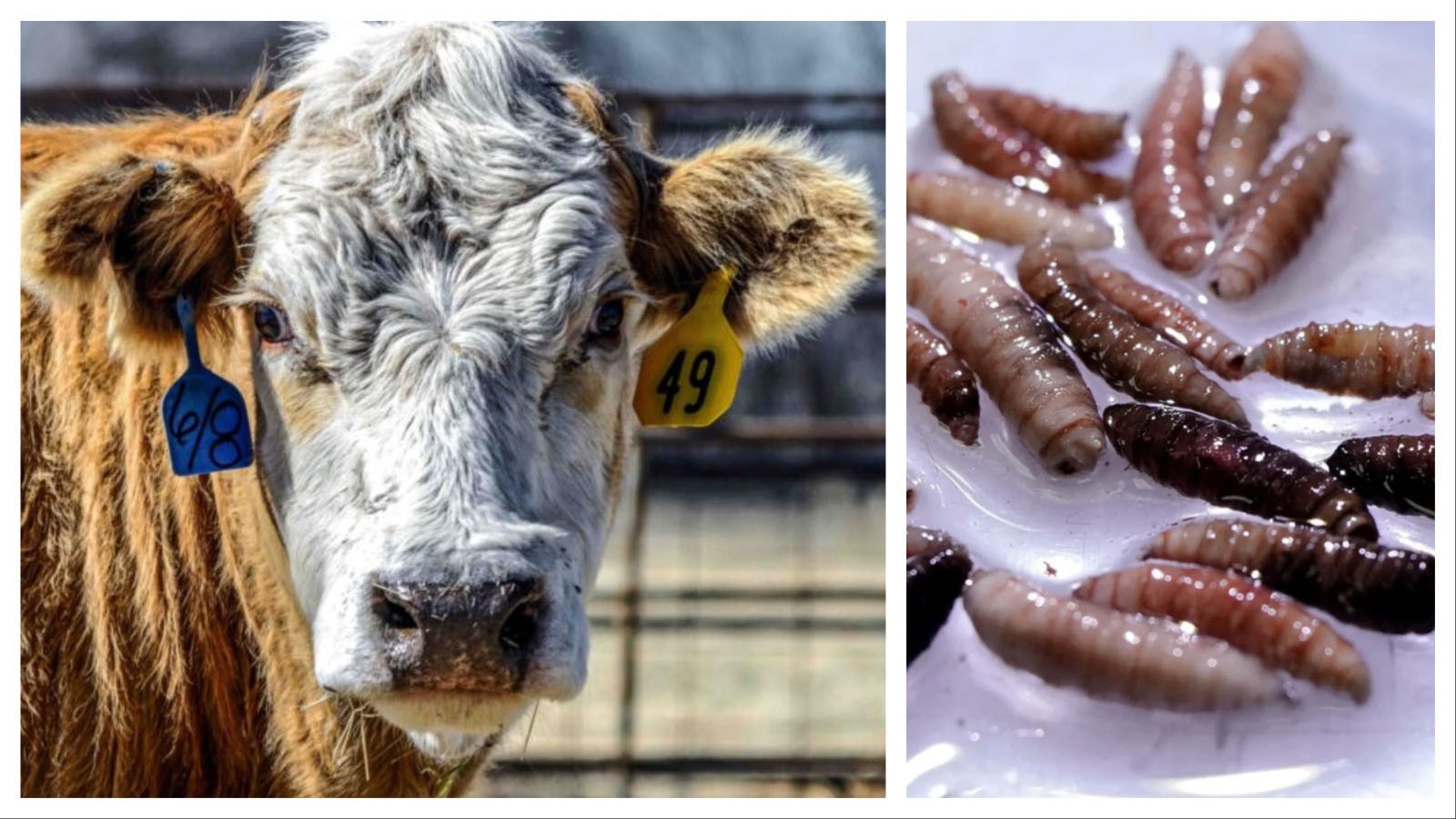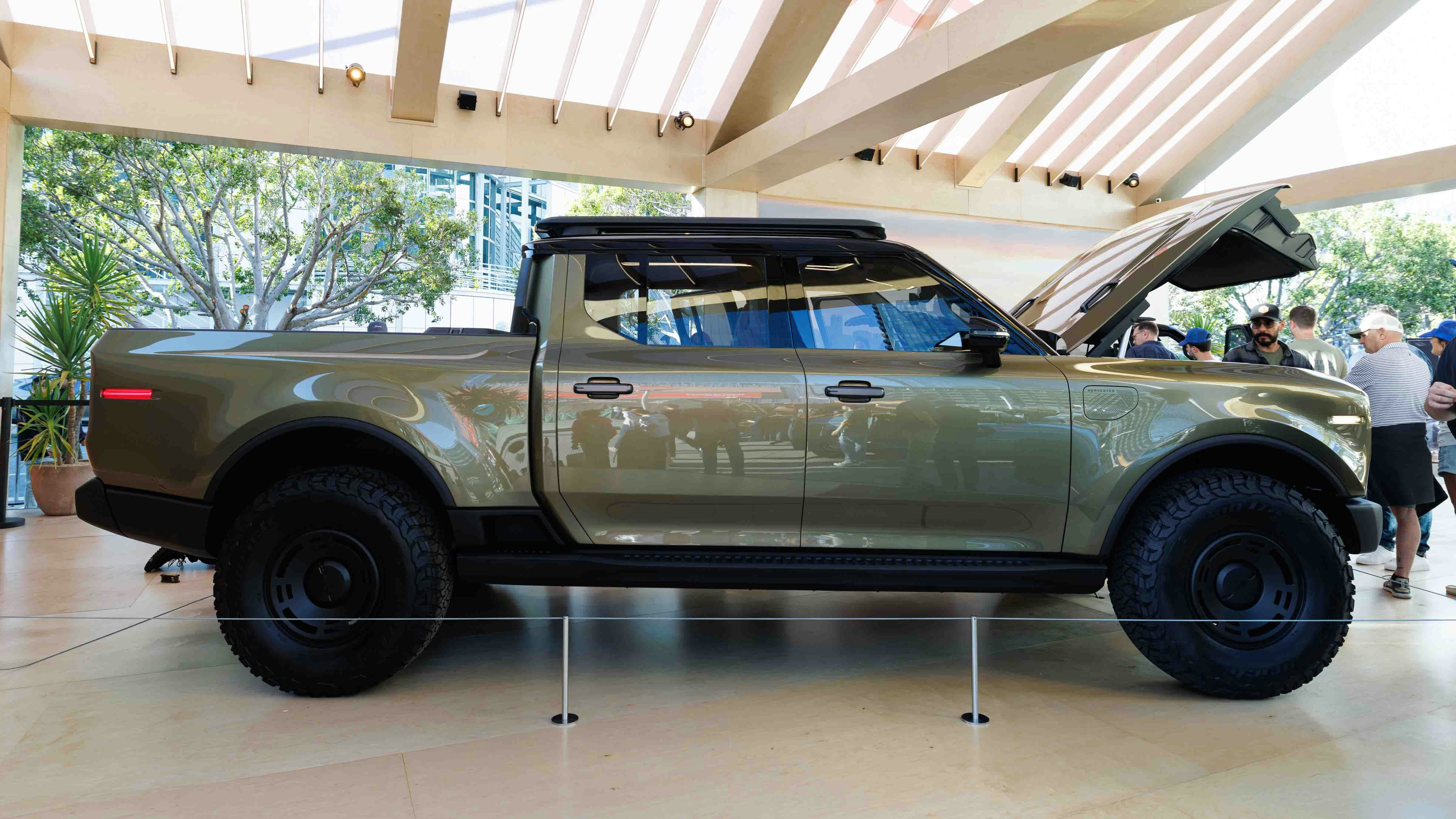Retired mechanic Gary Woolington of Cheyenne has always preferred Chevys. They were fun to drive and, once upon a time, easier for an individual to work on himself.
Wednesday morning, Woolington walked into Tyrrell Chevrolet in Cheyenne to buy himself a brand-new Chevy Malibu. Tariffs on automobiles made in Mexico and Canada that went into effect Wednesday were part of the calculus that led to Woolington’s decision to buy a new vehicle today rather than tomorrow.
“That’s part of it,” he told Cowboy State Daily. “I’ve got an ‘02 Impala that has 130,000 miles, and it’s starting to have just some little problems and stuff.”
Woolington’s move was a smart one, given that he has a vanishing window to avoid tariffs that industry analysts are predicting will add as much as $10,000 to the cost of a new vehicle with Canadian or Mexican parts.
Woolington hasn’t been the only one doing that kind of calculus, lately, deciding it’s better to buy now, rather than later.
“As far as my business, the last few days have been crazy, just crazy,” Tyrrell Chevrolet’s owner Dallas Tyrrell told Cowboy State Daily. “People know they’re gonna pay more, so they’re trying to get their purchases done. It’s absolutely been a huge, huge boom. Absolutely crazy.”
And it’s not just his own business that’s seeing a rush, he added. It’s happening all over the country.
“I’ve talked to a couple dealers and friends of mine, and several of them were sold out of new car inventory,” Tyrrell said. “Honestly, this kind of reminds me when (the) COVID (-19 pandemic) first happened, and we had shortages.”
Shortages Are Already Happening Nationwide
Tyrrell, too, is running short of inventory.
“As it sits right now, Chevrolet Traverse is sold out,” he said. “And Chevy 2500s. I still have a few 3500s available.”
Tyrrell is also still dealing with shortages that started in 2020, thanks to a microchip shortage.
“We usually keep 300 Chevrolets in stock, new Chevrolets,” he said. “And right now we’re sitting at about 80 new Chevrolets.”
Other dealers he’s talked to across the country are struggling with similar issues.
“I know a dealer in Denver that usually stocked 1,000 Chevrolets at least, and they’re down to somewhere like 112,” Tyrrell said.
The cars that were most affected by the microchip shortage were Tahoes, Suburbans and half-ton pickups. The very vehicles most of his buyers right now are the most interested in.
“Those are the things that we think are going to be tariffed (the most),” Tyrrell said. “But so, it’s the higher end vehicles.”
Wednesday morning, Tyrrell already had more than 40 appointments set to look at or test-drive particular vehicles — about a dozen more than usual.
The buyers were not just coming from the immediate area, either. Some were driving across multiple states, in search of particular vehicles, hoping to beat price jumps due to tariffs.
“We’ve got some people traveling from New Mexico today,” he said. “People are coming from all over, it’s crazy.”
The Price Watch
Tyrrell isn’t sure yet which vehicles are going to rise in price the most, though he’s been keeping an eagle eye on news feeds, emails, and the White House’s website, watching for information that can help him understand what’s ahead for customers and for his business.
“Right now, we know that tariffs are coming out of Canada and Mexico, and those are the two that he’s putting tariffs on,” Tyrrell said. “Other vehicles that Chevy produces, and Honda, but mostly Chevrolet, come from other countries (besides Canada and Mexico). So, there’s part of the line that’s produced in South Korea, for example, and those cars are not going be tariffed as of right now.”
The Chevrolet Silverado, though, is 32% produced in Canada, so Tyrrell anticipates a tariff on 32% of that vehicle line.
“We believe that’s the way it’s going to go down,” he said.
How much that will add to the cost is something he’s waiting himself to learn. For now, Tyrrell has resisted the temptation to start raising his prices on the lot. Even though he’s able to see that other dealers have already done so.
“We’re looking at it right now,” he said. “But we’re not raising prices for the time being. We do know that there are cars inbound that are going to be taxed up to 32%, depending on the percentage of the car produced in other countries.”
Once that happens, Tyrrell said he will have no choice but to change prices in accordance with vehicle costs. But for now, he’s keeping a vanishing window open for consumers to beat the tariffs, something he believes will just be good business.
“I was adamant during COVID, and I’ve been adamant during all of the that we aren’t going to try to gouge customers,” he said. “So, we haven’t sold anything over MSRP, and we won’t during this.”
End Game Is More Manufacturing In America
President Donald Trump has said he’s placed tariffs on vehicles with parts made in Mexico and Canada partly because he feels the countries have taken advantage of America and aren’t doing enough to control the borders, to keep drugs and illegal immigrants from crossing. But it’s also a bid to push manufacturers to make more auto parts in America, and to remake the balance of trade to be more in America’s favor.
“Obviously, that’s the end game,” Tyrrell said. “But you can’t just build a factory overnight. It’s gonna take a few years.”
It’s also a multimillion investment, but Tyrrell is hopeful that it’s something that will happen, to help revitalize the country.
“We do know there’s a couple vacant factories that are available,” he said. “So hopefully they’ll use what they have and retoolit … I think that would make the most sense.”
The factories Tyrrell mentioned are in Detroit, which has 900-some vacant and mostly abandoned manufacturing sites. Some of its old auto parts factories have already been repurposed or demolished to make way for new buildings.
Saving Money After The Tariffs
After tariffs hit prices, consumers who still need a vehicle will need to do more shopping around, Tyrrell suggested. And cars that have a higher percentage of American-made parts will probably be the best values going forward.
That area is actually one of the bright spots Tyrrell is anticipating for his business personally, since he also has a Honda dealership. Honda was tied in 2024 for being one of the most made-in-America cars around on Cars.com’s annual Made In America index.
That index lists Tesla as the No. 1 most made in America car, followed by the Honda Passport, Volkswagen ID.4, Tesla Model S, Honda Odyssey, Honda Ridgeline, Toyota Camry, Jeep Gladiator, Tesla Model X and Lexus TX, for the Top 10.
Cars that have more parts made in America versus Canada or Mexico are likely to run cheaper, Tyrrell suggested, and will probably be where consumers can find the best value going forward.
Used cars may also be an option, he suggested, though that, too, could become a vanishing window of opportunity.
“I think this will increase used car sales,” he said. “People buy them because they’re a cheaper price point. But, whenever new cars go up in price, it makes the demand for used cars more.”
For those who know they’ll need a new car in 2025, now may be the best time for either used or new, Tyrrell added.
“No question,” he said. “Now’s the best time to save money. Between now and when we sell out and start getting more cars.”
Renée Jean can be reached at renee@cowboystatedaily.com.











